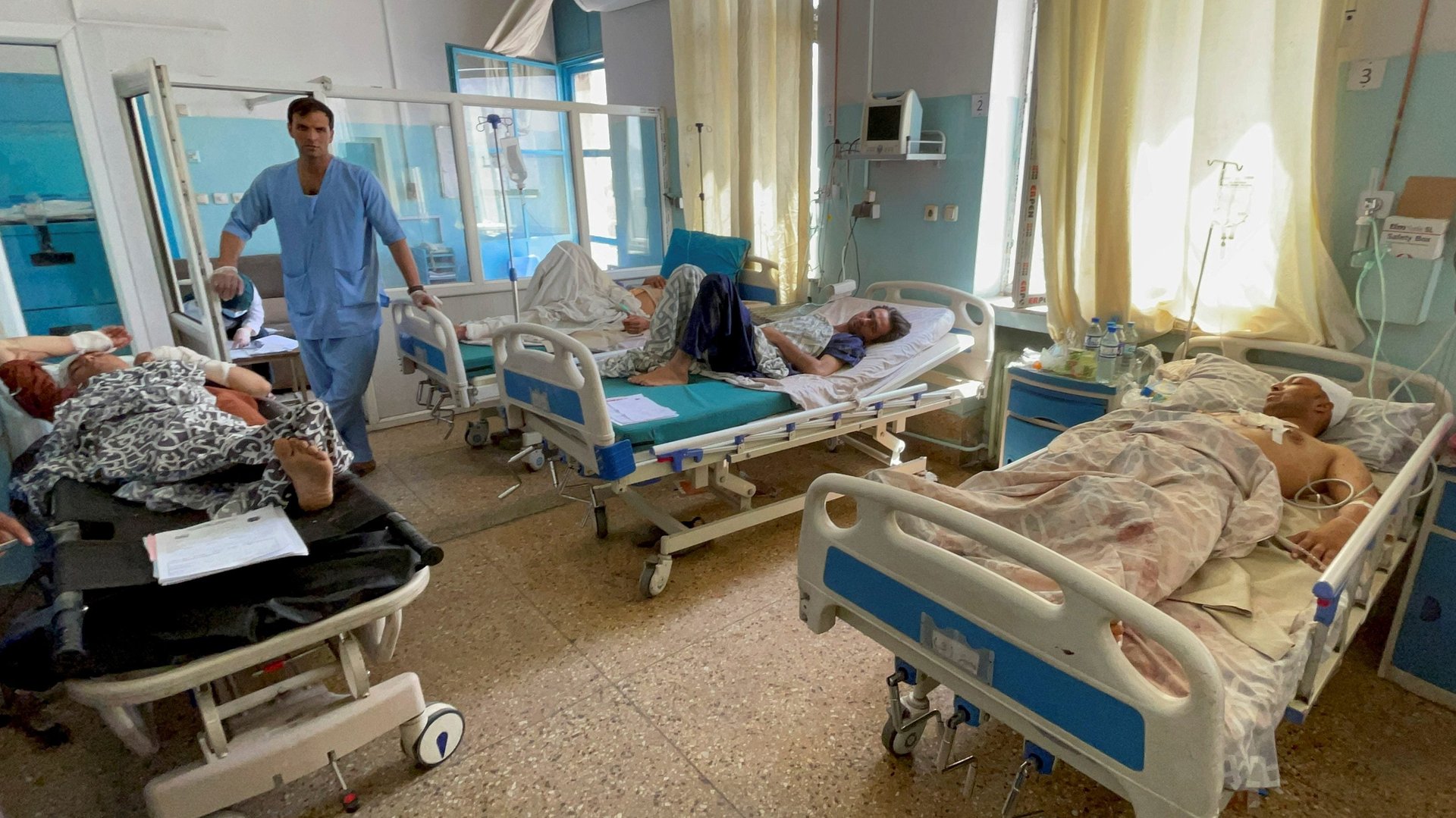The flight from Afghanistan could decimate its healthcare system
There are hundreds of thousands of Afghans—300,000 according to some estimates, though the actual number may be higher—who are in line to flee the country after the Taliban takeover. Among them are thousands of local employees of international non-governmental organizations (NGOs) and United Nations missions that have been working for years in development projects such as running schools, providing family planning, or supplying basic needs to impoverished populations.


There are hundreds of thousands of Afghans—300,000 according to some estimates, though the actual number may be higher—who are in line to flee the country after the Taliban takeover. Among them are thousands of local employees of international non-governmental organizations (NGOs) and United Nations missions that have been working for years in development projects such as running schools, providing family planning, or supplying basic needs to impoverished populations.
Local NGO workers are afraid the new regime will retaliate against them for cooperating with western organizations providing essential services in the country. Since many are eligible for special refugee visas, many are asking their employer to support them in escaping Afghanistan.
But this brain drain won’t just deprive the country of some of its most precious talents, but risks removing the linchpins of all fundamental systems of society, such as education, justice, and—especially troubling, given the ongoing pandemic—healthcare.
A precarious situation
Afghanistan has one of the most precarious healthcare systems in the world. Because of decades of ongoing conflict, the life expectancy is only 42 years, and the country trails most of the world in pretty much all health indicators. It has one of the lowest per capita rates of physicians (30 every 100,000 people), and the same goes for hospital beds (40 per 100,000 people), and nurses (20 per 100,000 people). This is far below the average of other South Asian countries, which still rank among the lowest in development levels globally.
Yet even these limited resources are the result of years of work following the US’s invasion in 2001. The progress made in the past few years risks crumbling and with it, what limited healthcare the country has.
The Afghan economy isn’t strong enough to provide the health ministry with the funds and resources it needs to run a reliable and widespread healthcare system. So far, the government has relied heavily on international aid to support and build its healthcare infrastructure, as well as on the work of hundreds of local and international humanitarian organizations. These NGOs are often subcontracted to provide care, train local staff, and build hospitals around the country, in a model that is more affordable for the central government than running its whole health system, but makes it completely dependent on external organizations.
Can the Taliban maintain a healthcare system?
The US has frozen the country’s assets, and the International Monetary Fund and the World Bank have suspended aid to Afghanistan so that the Taliban doesn’t have the opportunity to misappropriate development money. Whether international donors will resume their aid to the country largely depends on the Taliban’s actions after the US and NATO forces have left the country, which in turn will likely be dictated in some measure by how much the new government is determined to get that aid.
The Taliban has given some preliminary indication that it intends to maintain at least some of the apparatus of the former government’s ministry of health, which would reduce at least some of the expected chaos that will be following the onset of a regime with no experience running a country. This would also make it more likely that international aid for health care could be reinstated—though the volatile situation doesn’t lend itself to accurate forecasting.
United Nations agencies, as well as large international humanitarian organizations, have stated their commitment to continue serving Afghans. But their personnel, especially those who are local or female, are scared of becoming a target of Taliban violence and oppression. Many are trying all they can to leave Afghanistan at least until they have evidence that the Taliban’s statements on guaranteeing human rights aren’t hollow.
This exodus could leave several health outposts with a shortage of personnel, which is especially concerning as the crisis has pushed up the number of displaced people and conflict victims, increasing the need for emergency medical services as fighting and violence continues in various areas of the country.